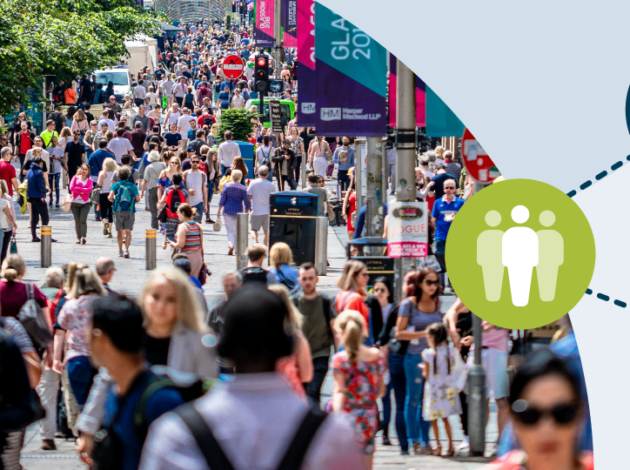Trust in official statistics remains high but there’s still work to do

From playground surveys to video guides, Professor Sir Ian Diamond explains how the ONS is boosting its efforts to get everyone engaged with data.
Keeping trust
Good statistics can tell us so much: from tracking the cost of living to uncovering the health needs of our population, they are a vital source of evidence. But statistics are only as good as the data on which they are based – and access to reliable data isn’t a given – it depends on people and organisations across our country not only being happy to share their information with us but understanding what the resulting statistics mean and how they can benefit from them.
While I’m pleased that trust in our statistics remains high, I’m also very aware that trust can be easily lost in times of change or when we introduce new ways of doing things.
People are accustomed to us carrying out traditional surveys but in today’s digital society an explosion in the volume of data available has given us the opportunity to tap into many rich new data sources, which are not so well known.
Stats are for everyone
I’m excited about the potential of new data sources, and I want everyone in the UK to have the skills to understand and use the stats they allow us to create. With this in mind, we’re launching a whole host of new projects to bring our stats to the people:
How to videos
To benefit from stats, and be confident that they are reliable, we need to understand more about the data they have been derived from and how to read and use them.
Our new set of video guides are a great place to start, covering topics such as why data matters to how the ONS de-identifies them and where we get them from.
They are all available to watch on our YouTube channel.
Playground survey
During the 2023/2024 school year, we teamed up with the BBC and the Micro:bit Foundation to give children in primary schools the opportunity to take part in a nationwide playground survey.
The BBC Micro:bit Playground Survey is a wonderful way for children to learn data skills at an early age, getting to grips with data collection and analysis in a way that is relevant to their everyday lives, in a familiar and fun setting.
If children become data-literate now, they will be well prepared to navigate and take advantage of the huge amounts of data that will no doubt play an important role in their adult lives.
Keep an eye out for the results in October.
Navigating numbers – the ONS data education programme
We’ve also been busy developing a data education programme for students in further education or sixth form.
Navigating numbers: how data are used to create statistics includes a series of five classroom toolkits, exploring topics such as gender pay gaps, inflation, and health.
Created with the support of the Association of Colleges (AoC), this learning resource is free for teachers to use and available for download on the ONS website.
The ONS’s educational webinar series: Bringing data to life
If you want to learn more about measuring the cost of living or our nation’s health, then our new webinar series has you covered. These and other topics will be brought to life in this new series of online events, launching in September 2024.
You’ll hear from people who work with data across government, who will explore the difference between data and statistics, how statistics are created, and where they have made an impact. You’ll also have the chance to participate in quizzes, ask questions, and share your thoughts.
The webinars are free and open to anyone who is curious about data and how statistics are created. You can find out more and sign up for the events on Eventbrite.
Check out our new webpages for more information on all these resources and more.